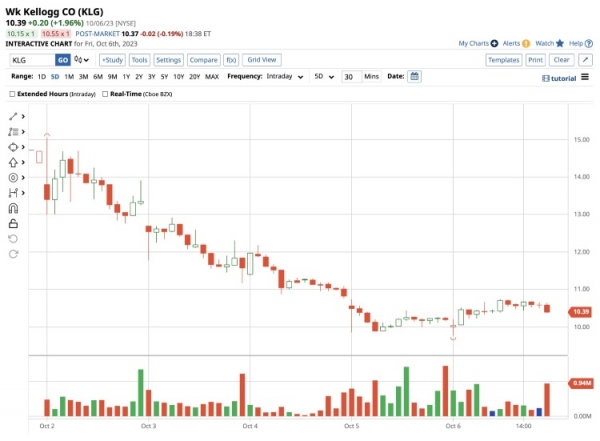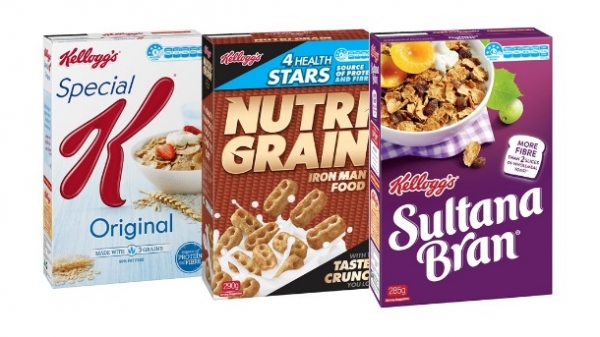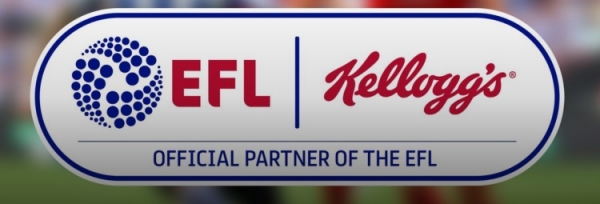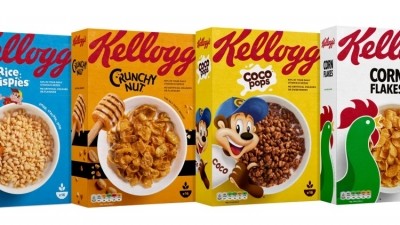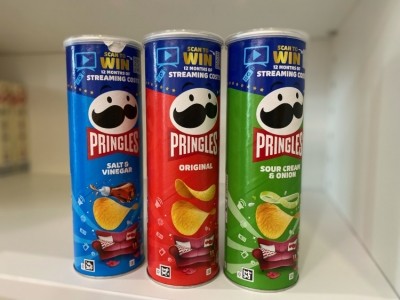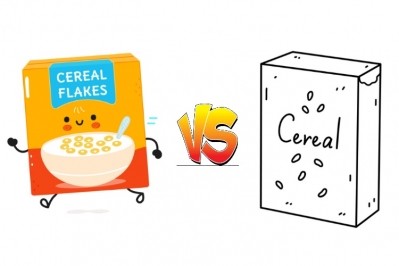WK Kellogg Co spin-off gets ‘frostie’ reception from shareholders

For the past decade, Kellogg's has essentially stagnated, with both top-line and bottom-line results almost flatlining since 2013. It was therefore little surprise the Battle Creek, Michigan-headquartered conglomerate reviewed its strategy to kickstart performance.
What is a demerger?
Sometimes called a spin-off, it’s the act of splitting into several entities and creating new companies. It’s not necessarily a sign that something’s wrong internally, but oft a strategy employed by conglomerates to lighten the load.
A newly found autonomy can be a great asset, especially on financial markets. A company’s overall worth mirrors the performance of its products, however, conglomerates like Kellogg - with its massive brand portfolio - can indeed become too big and unwieldy, with some products performing really well and others not.
By specialising in a specific field, the spinoffs also gain in efficiency and can shed the chains of high operating costs that typically burden conglomerates.
The initial strategy involved dividing into three independent companies - the third being a pure-play plant-based food company with around $340m in net sales - but the board of directors ultimately moved forward with two. It’s assumed the plant-based unit was dumped due to a surprising lack of investor appetite.
WK Kellogg - named after the company founder William Keith Kellogg - is positioned as a premier cereal company across the US, Canada and the Caribbean, with annual production of over 360,000 tonnes of brands like Corn Flakes, Frosties, Special K, Rice Crispies bringing in around $2.4bn in net sales. It’s the second-largest seller of cereals on the North American continent - the largest brand being General Mills’ Cheerios, with sales of $435.9m and 139.1m boxes sold in 2022.
The larger unit - Kellanova - retains the remainder of Kellogg’s assets in global snacking, international cereal and noodles, and North American frozen breakfasts (Pringles, Pop-Tarts, RXBar, Cheez-It, etc) amassing around $11.4bn in net sales.
The rationale is that two would be able to focus on distinct priorities more effectively, which includes sourcing, processing, distribution and marketing strategies.
According to the company’s website, Kellanova’s strategy is to Differentiate, Drive and Deliver - that is, growing profitability by dedicating resources to its unique mix of megabrands. Long-time CEO and chair of Kellogg’s Steve Cahillane takes up the mantle as Kellanova’s CEO.
For its part, WK Kellogg’s strategy is laser-focused on the cereal business - meaning it is not expected to expand into other categories - along with modernising its supply chain, under the direction of Gary Pilnick.
Will it really benefit shareholders?
Since the start, Kellogg sought to power the transaction through a tax-free spinoff, directly distributing shares to existing shareholders of the parent company. This means shareholders of Kellanova (formerly Kellogg) received 1 share of WK Kellogg for every 4 shares of K they held.
Since the transaction was completed (on 2 October 2023), shares of both Kellanova and WK Kellogg have fallen.
The rationale for the split was to create ‘substantial value for shareowners’, according to Cahillane, however, the old K shares had not exactly covered themselves in glory in 2023, trading near lows just ahead of the split.
In August, Kellogg released its quarterly earnings results, posting earnings per share (EPS) of $1.25, exceeding analysts’ consensus estimates by $0.14. The company achieved a return on equity of 33.33% and a net margin of 5.46%, generating $4.04bn in revenue for the quarter, slightly below analyst estimates of $4.05bn. Based on equities research analysts’ predictions, Kellogg is expected to post EPS of $3.98 for the current year.
Both new companies saw stock prices tumble in the first week of trading: Kellanova slipped 9%, but the 40% dive by WK Kellogg would be enough to turn any investor ‘frostie’.
Americans consume approximately 2.7 billion boxes of cereal annually, and the US cereal market was valued at $20.58bn in 2022. However, consumer appetite for sugar cereals is quickly souring, so growth of the sector is projected to be relatively slow: at 2.33% CAGR until 2027.
At the same time, fierce competition has emerged from new alternative players in the premium segment - organic, private labels, etc - along with private labels in the lower-price segment.
Following the mass liquidations - with 85.6 million shares outstanding - the enterprise value (market capitalisation and net debt) of WK Kellogg stands at $1.3bn, a multiple of only x5 to x6 the operating profit before depreciation and amortisation (EBITDA) expected over the next three years, and less than x7 the consolidated profit projected by analysts to 2025.
While financial performance has been disappointing in recent years, Cahillane is adamant WK Kellogg will return to double-digit operating margins. Both new companies boast a strong portfolio of products that consumers across the globe recognise and love, and there is the 117-year-old legacy as a foundation.
However, it remains to be seen whether the recent change will actually result in operational excellence and value for shareholders.
Presence down under
The split of Kellogg Company has, not surprisingly, far reaching tendrils, with its Aussie arm rebranded under the Kellanova name.
Kellanova MD Anthony Holme said the change doesn’t impact Aussie consumers ‘right now’.
The massive rebrand comes almost 100 years after the cereal giant was introduced to Australia (in 1924), however, it might go unnoticed, as cereal favourites like Coco Pops, Sultana Bran and Crunchy Nut will retain the Kellogg’s logo.
“It means much more choice for Australian consumers in the future as we bring the global snacking opportunities and local snacking opportunities into Australia,” he said.
“People are moving through the day faster. They don't necessarily want the same format of food ... and we need to answer to that.
“Impulse occasions are very different to formal sit-down meal occasions, and the way that you take it to market, whilst appearing the same, creates a much more entrepreneurial and much more focused growth mindset.”
English football partnership
In other news, Kellogg UK - which also splits into WK Kellogg and Kellanova - has signed on as official partner of the English Football League Championship.
Kellogg cereals were first introduced to the British public back in 1922 and have become as popular as football for millions of people across England and Wales, so the partnership made sense for the multinational giant to positively impact the 72 communities where EFL clubs are located.
“It’s been our great privilege to be part of British life for more than one hundred years, so it’s only right we should be joining up with another iconic institution like the EFL,” said Chris Silcock, Kellogg UK’s MD.
“Both Kellogg’s and the EFL are brands at the heart of communities up and down the country and this is the start of a great partnership.”
Kellogg’s will have presence across all the EFL’s three divisions and five Wembley finals.
“With growing attendances, bigger audiences and an enhanced sponsorship portfolio, the EFL’s popularity is clear,” said Ben Wright, chief commercial officer, EFL.
“Eighty percent of the population live within 15 miles of an EFL Club and millions of fans come through the turnstiles every month, meaning the League has the ability to forge strong connections with families on a nationwide scale.”
The cereal and snack giant will also work with the EFL’s charitable arm until the end of the 2027/28 season.
“Between the EFL Trust’s vision and Kellogg’s ambition around the roles we play in our communities, we are perfectly aligned to create a significant and positive impact,” said Cathy Abraham, CEO, EFL Trust.
“Together, we will be a force for good and we will create positive moments for our communities for years to come.”

